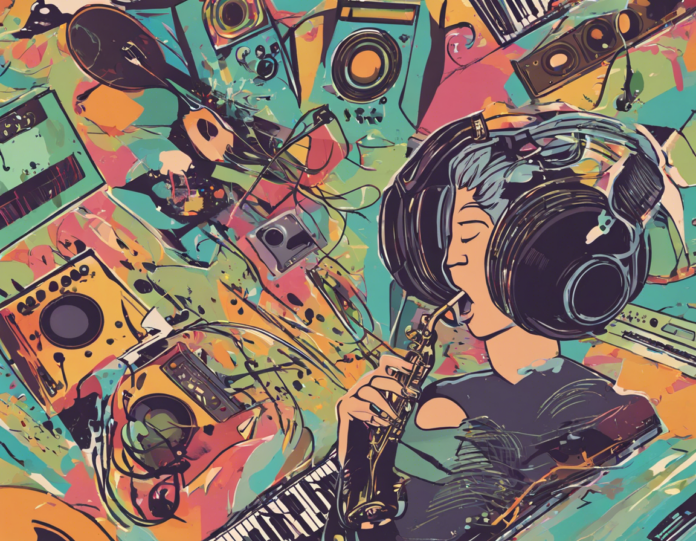Introduction
Listening to music is a common activity that many people enjoy, whether it’s to relax, exercise, or simply pass the time. But have you ever noticed that music seems to sound even better when you’re high? Whether you’ve consumed marijuana, alcohol, or any other substance, the experience of listening to music can be radically transformed. In this article, we’ll explore why music sounds better when you’re high, examining the scientific, psychological, and physiological factors at play.
The Science Behind Music and Cannabis
One of the most common ways people enhance their music listening experience is through the use of cannabis. Cannabis contains compounds called cannabinoids, which interact with receptors in the brain to produce various effects, including euphoria, relaxation, and heightened sensory perception. When you consume marijuana and listen to music, the cannabinoids can amplify the emotional and aesthetic aspects of the sound.
Studies have shown that cannabis can enhance the perception of music by increasing sensory stimulation and emotional response. THC, the primary psychoactive compound in marijuana, can alter neural pathways in the brain, leading to a more intense and pleasurable auditory experience. This can result in a heightened sense of immersion in the music, with listeners reporting that they can hear and feel the music in a more intense and vivid way.
Psychological Effects of Music and Alcohol
Alcohol is another substance that is often consumed in social settings where music is playing. While alcohol acts on the brain in a different way than cannabis, it can also influence the perception of music. Alcohol is a central nervous system depressant that can affect auditory processing, attention, and memory. When you’re drunk and listening to music, you may notice that the sound seems louder, richer, and more engaging.
Research has shown that alcohol can lower inhibitions and increase sociability, which can make music listening a more enjoyable and social experience. Alcohol can also enhance emotional responses to music, leading to a greater sense of connection and intimacy with the sound. This can explain why many people find that music sounds better when they’ve had a few drinks.
Physiological Responses to Music and Substances
In addition to the psychological effects of substances on music perception, there are also physiological responses that can impact the way music sounds. Substances like cannabis and alcohol can alter heart rate, blood pressure, and respiration, which can in turn influence the way sound is processed by the brain. These physiological changes can enhance perceptions of tempo, rhythm, and pitch, leading to a more enjoyable and immersive listening experience.
Conclusion
In conclusion, there are multiple factors that contribute to why music sounds better when you’re high. Whether you’re consuming cannabis, alcohol, or any other substance, the interaction between brain chemistry, psychological state, and physiological responses can enhance the music listening experience. While substances can certainly amplify the enjoyment of music, it’s important to recognize the risks and potential negative effects of using substances to alter mood or perception. Moderation and safe use are key to enjoying music in a healthy and sustainable way.
FAQs
1. Does music sound better when high because of altered brain chemistry?
Yes, substances like cannabis and alcohol can alter brain chemistry, leading to increased sensory stimulation and emotional responses to music.
2. Is it safe to listen to music while high?
While music listening while high can be an enjoyable experience, it’s important to exercise caution and responsibility when using substances.
3. Can listening to music while high have long-term effects on the brain?
Long-term use of substances to enhance music listening can lead to dependence, tolerance, and other negative health consequences.
4. Why do some people experience synesthesia when high and listening to music?
Synesthesia is a neurological phenomenon in which stimulation of one sensory or cognitive pathway leads to automatic, involuntary experiences in a second sensory or cognitive pathway. Consuming certain substances can heighten sensory perception and lead to synesthetic experiences when listening to music.
5. How can I enjoy music without using substances?
There are many ways to enhance music listening experiences without using substances, such as creating a relaxing environment, experimenting with different genres and styles, and practicing mindfulness and focus when listening.


